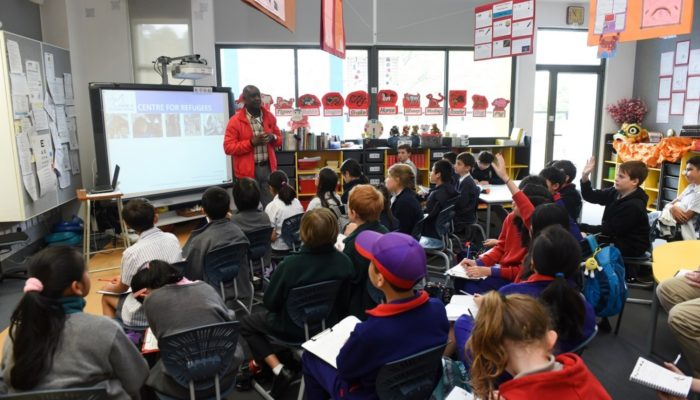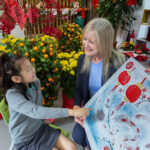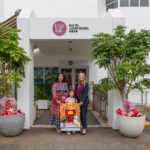ESF NGO conference inspires curious minds
To nurture a child as a whole person, learning has to extend beyond the classroom. To develop students with global perspectives, the English Schools Foundation (ESF) invited non-governmental organisations (NGOs) to the annual ESF “Agents of Change” conference to share stories about their work and how to take action to make the world a better place.
The second “Agents of Change” conference, which is organised by ESF, was held on Friday, 26 February this year at ESF Kowloon Junior School. The event gathered representatives from over 20 NGOs to present to more than 900 Year 5 and 6 students from across ESF primary schools.
NGO groups focused on fields ranging from animal rights and conservation to environmentalism and aid. They included Ark Eden, Hong Kong Dog Rescue, Hong Kong Dolphin Conservation Society, Clean the World Foundation, Plastic Free Seas, Christian Action, Unicef, Indochina Starfish Foundation and Food Angel.
All NGOs, students and teachers expressed their desire to work towards long-lasting relationships and expressed the value of combining networks in order to realise short and long-term goals towards sustainability and social justice.
The conference also supports students in their preparation for the IB Primary Years Programme (PYP) exhibitions. All students involved showed a high level of engagement, asked relevant and searching questions and offered meaningful suggestions about the action they could take as a result of their learning.
“Christian action was very informative about the refugee plight and how bad thoughts can get into their heads. We thought it would be nice if we could help refugees,” Louise Morrison, a Year 6 student from ESF Clearwater Bay School said.
Another student, Tyson Clements, from ESF Discovery College expressed his concerns towards food waste problem in Hong Kong. “I was surprised by how much food we waste in Hong Kong every day. I now want to try and finish my meals or eat the left overs the next day,” he said.
“One of the essential elements of the ESF PYP curriculum is the action component. We want to develop students who are willing to take action to create social change,” said Rebecca Clements, ESF Senior School Development Officer (Primary and Early Years).
“The conference supports us in developing ESF learners who are actively engaged with the local and global community, collaborative contributors to society and responsible global citizens. Student will now further strengthen their partnerships with the local NGOs as they engage in their in-depth inquiry around an issue of need as part of the Year 6 Exhibition process.” said Clements.






